Legal Travel to Cuba Held His Imagination. Then the Cuban People Captured His Heart
For years, alumni volunteer Peter Dykstra stood on the southernmost point of Key West, Florida and imagined he could reach out over 90 miles of water and touch the Cuban coastline. But the country remained a mystery to him while it was “off limits” to Americans. But when Global Volunteers made legal Cuba service travel fully accessible, it was “an invitation he couldn’t resist.” In Ciego de Ávila, Peter was introduced to the “real Cuba” that he shares here.
By Peter Dykstra
I have a Cuban friend in New Jersey who, even after 30 years away from the island, still calls Cuba her home. She speaks of it with longing and shows me such beautiful photos of her visits. Finally, I had a chance to see and discover it for myself in the beautiful and hospitable city of Ciego de Ávila. I could travel legally to Cuba through Global Volunteers. Soon, I was on my way!
The days on site immediately developed a familiar rhythm. Breakfast at 8 o’clock, served in my casa by my host Aracely, a feast of eggs, bread, mango, papaya, and frozen juice, plus a thermos of the best coffee I’ve ever had. Since I had about eight words of Spanish – buenos días, muchas gracias, hasta luego, mañana, and baño – Aracely and I communicated mostly by smiles and nods. Still, she made me feel welcome in her home, a significant gift, and I will remember her hospitality forever. I became familiar with my new neighborhood. The streets from Máximo Gómez Park down to José Martí Square and up to the Community Center on Chicho Valdes, which is also the main highway across Cuba. I met my teammates, and we strolled down the graceful pedestrian Boulevard Independencia to the Community Center where we taught. We ate at our regular restaurants and got to know the waiters at the Hotel Rueda Bar by name and personality.
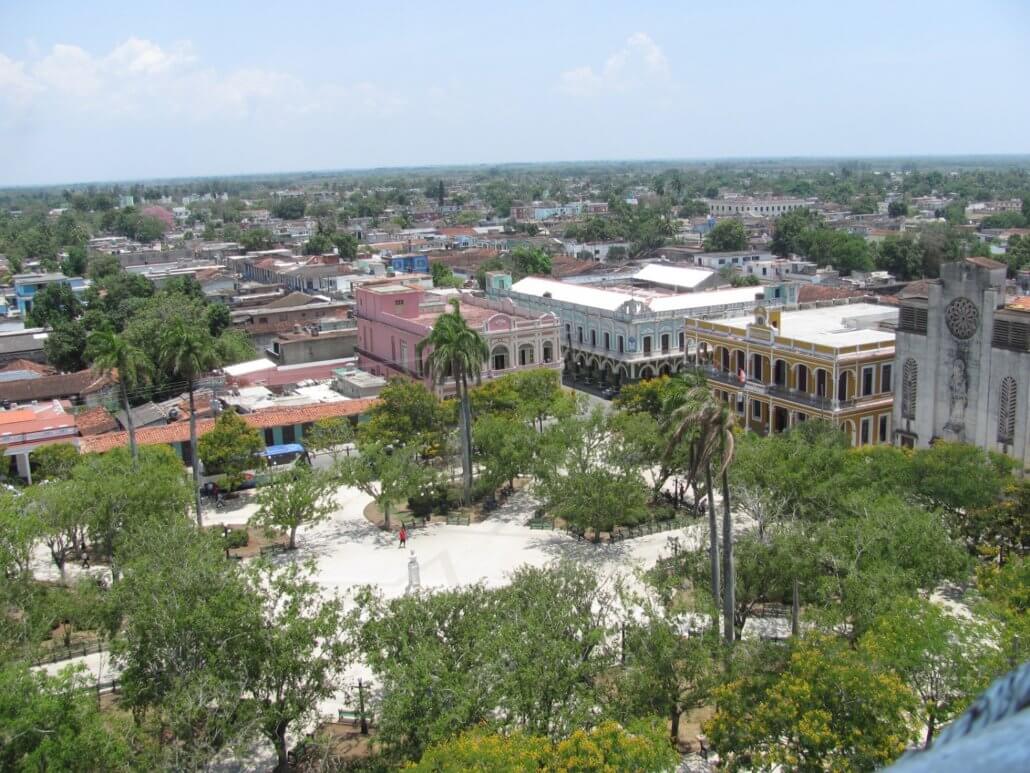
An aerial view of Ciego de Ávila. 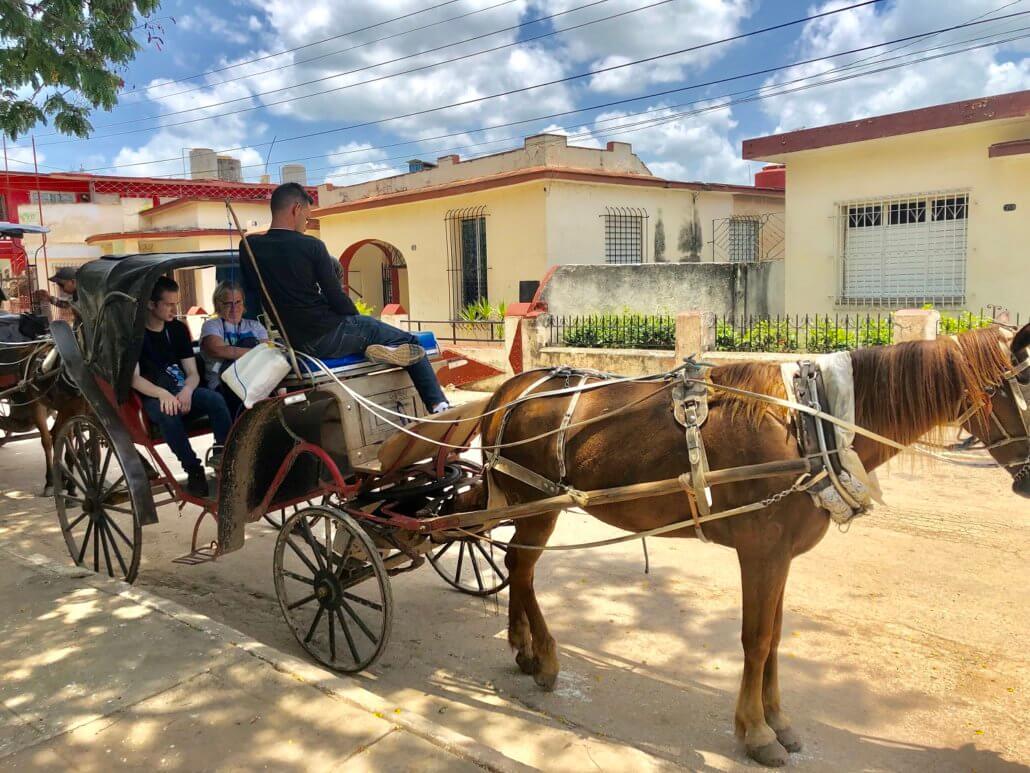
Horse cart transportation is one option for volunteers in Ciego de Ávila. 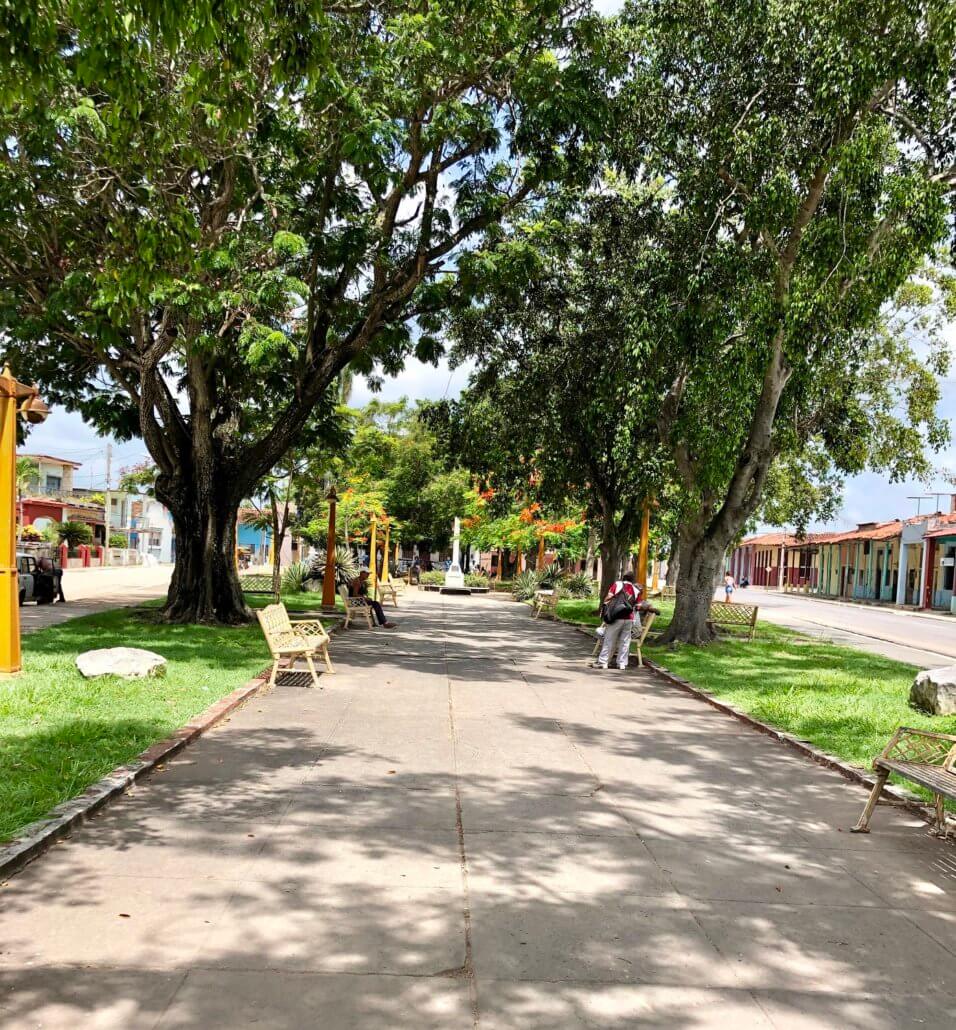
The numerous parks in Ciego de Ávila are popular meeting places for volunteers and local people.
I discovered the true “riches” of Ciego de Ávila.
There’s the sunshine – be careful what you wish for, this can be overwhelming. There’s time – for walking, for long conversations over meals, and drinks. The real treasure of course, is the people. The ones who greet us on the street or in church. And our students who come to the community center to get to know us, to talk about their lives and ours as they practice English, to tell us about their plans and challenges, their strategies for living and determination to live rich lives. Many of them return day after day, and we develop relationships as they improve their language skills. We met as equals and offered help with English, gardening, sewing or singing Guantanamera (off-key). We recognize familiar faces; people who have become friends.

The sewing project is a popular work project with local women. 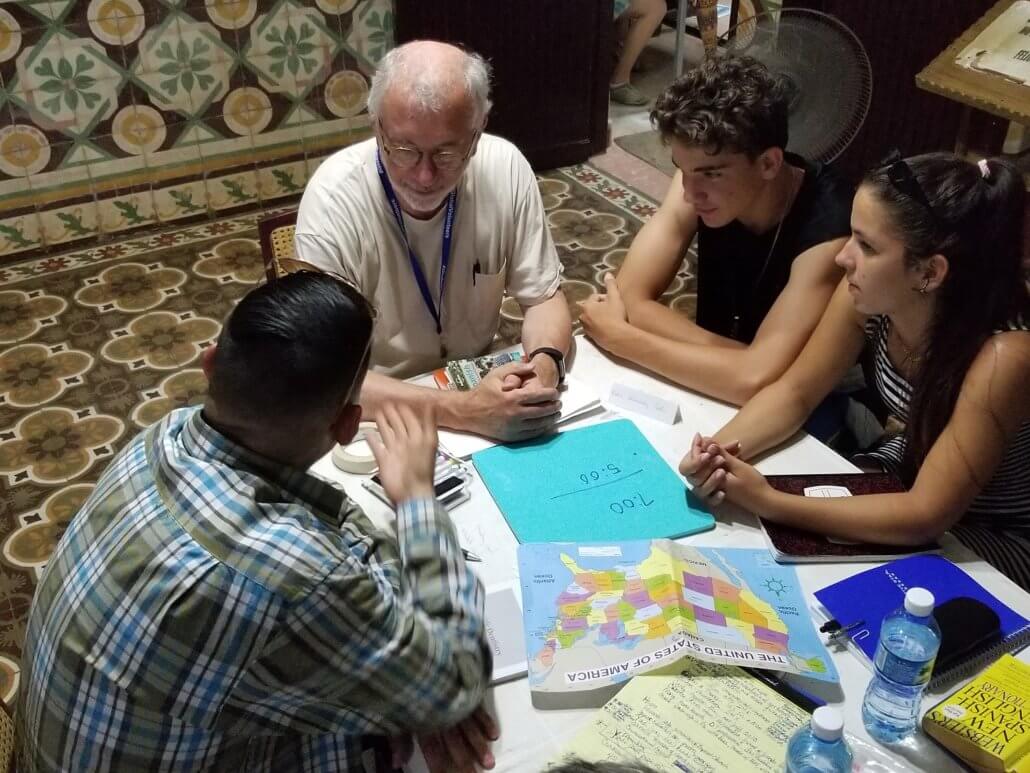
Peter tutors students in English conversations at the Community Center.
I experienced the Cuban culture.
We listened to insights based on different perspectives, and learned about the richness of the Cuban spirit. We appreciated people’s resourcefulness, grace, humor, and delight in life. We reveled in the spontaneity and openness of delighted children. Outside the center, we saw the brilliance of artists — dancers, musicians, craftspeople — and felt the energy of the street. Soccer, ping pong under the bridge, immaculate cars from the 40s and 50s, a hundred styles of horse carts and bike taxis, tai chi in the park. Ciego is called the city of porches. You can walk down entire blocks under the shade of porch roofs connected from one house to the next. Buildings are constantly being rebuilt and extended, signs of life and vitality.
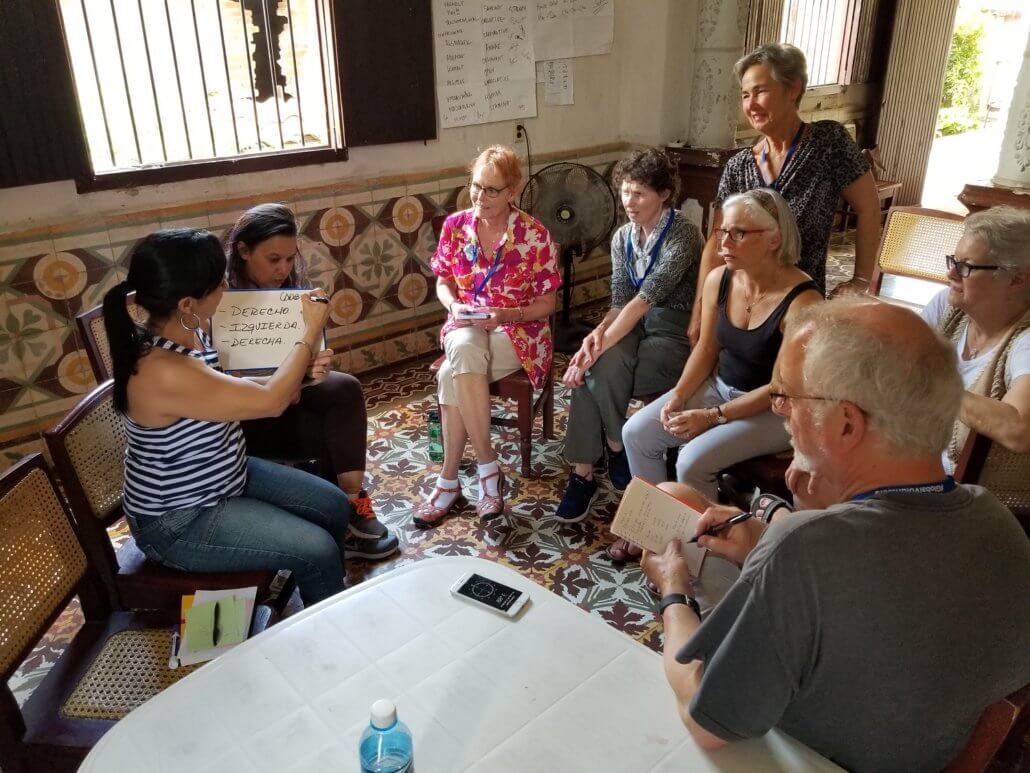
A change of roles: The volunteers enjoy Spanish language lessons taught by their English-language students. 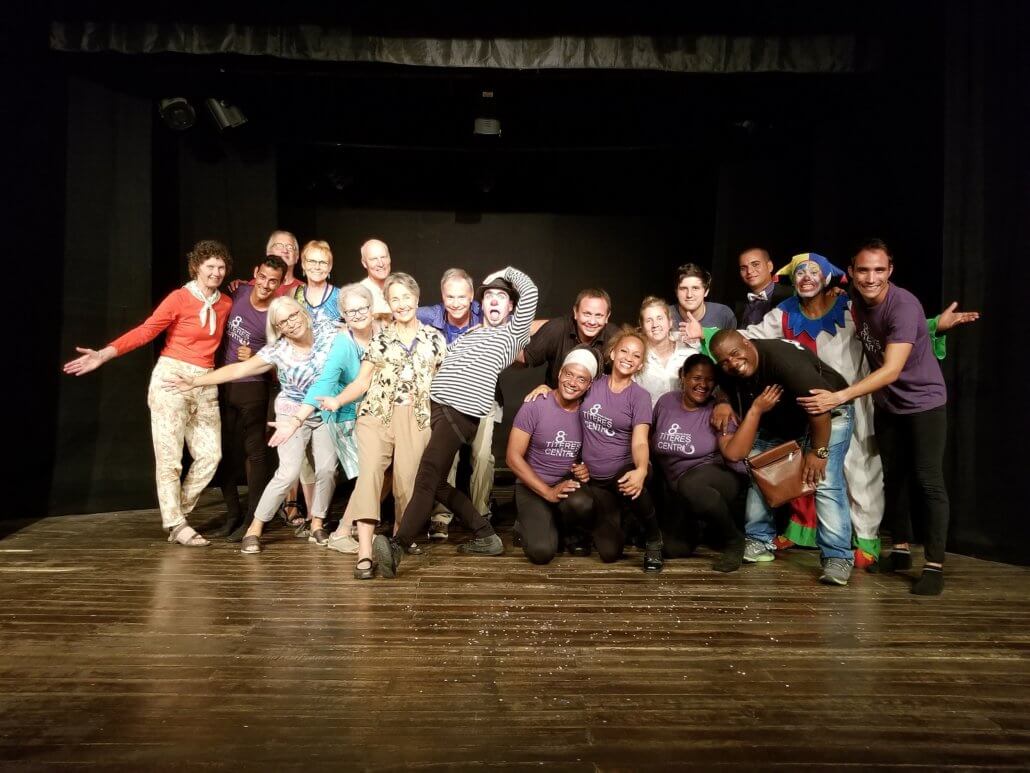
The team joins the performers from Ciego de Ávila’s Polichinela Theater Company on stage with volunteers.
I learned about daily life – and struggles – in Cuba.
Life is full of intractable problems. We had lessons in diplomacy and politics – what we say and do not say about our two governments, changes in US policy, and the sobering chance that future service projects here could be restricted. Other topics: Families dealing with limited pay and scarce resources. How the down payment for a new house going up may have required working three jobs for 10 years or a doctor working three years in Venezuela to save $10,000. How obtaining food each day can be a full-time job of networking to track down what’s available and trekking to different places for eggs and milk and vegetables. The inequality is stark. The price of our dinner or two rounds of drinks at the Rueda might be a month’s salary for a cab driver or a doctor. The money Global Volunteers pays to families for our lodging may double or triple their income while we are here.
“Realizing that Rafael (my student) was a musician and recognizing the pleasure in exchanging songs, I think helped us both understand what we had in common, and I appreciated him sharing the different flavor of Cuban music.”
Peter Dykstra
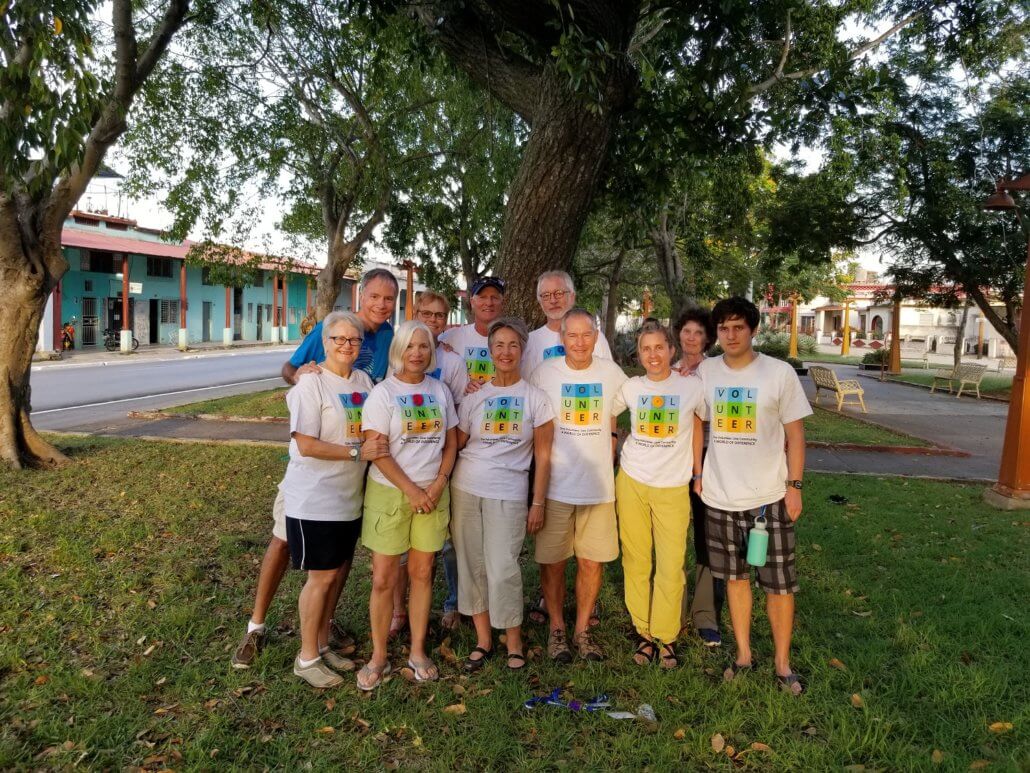
Peter and his team mates at Parque Juanita. 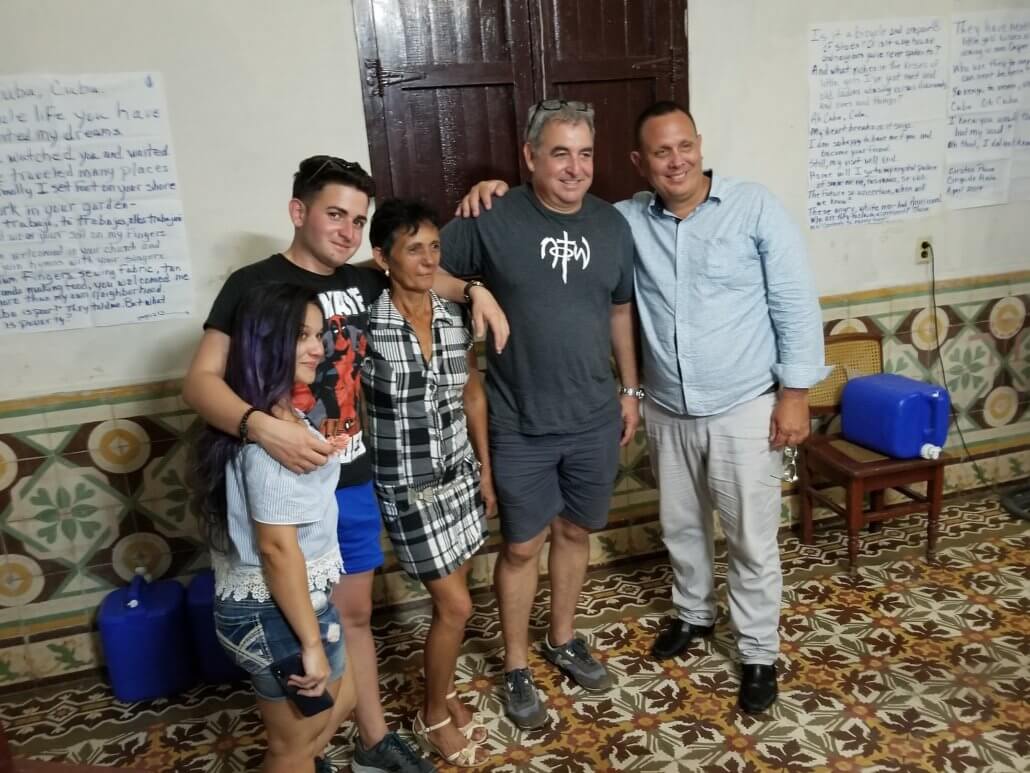
Our hosts and partners in Ciego de Ávila – Yadi, Yunior, Edilia, Eduardo, and Yanel.
I appreciated my generous teammates.
We also learned about ourselves – a self-selected group of people with a shared interest in serving Cuba. If the path to success in life is to work with people who are smarter, and funnier, and kinder, and wiser, and more experienced, and better dancers than you are, then this has been one of the most successful experiences of my life. I can’t remember working this closely with any team of people where every single person was such a pleasure to know, and a joy to work with. Every person on this team of Global Volunteers and the local staff has made the project and my contribution better.
Cuba is still a big “mysterious” topic to some people. But, it need not be. I offer thanks to my fellow team members, to the local community members we served, and to our wonderful Cuban hosts, my new Cuban friends! Our lives have touched each others, and are just a bit more intertwined.
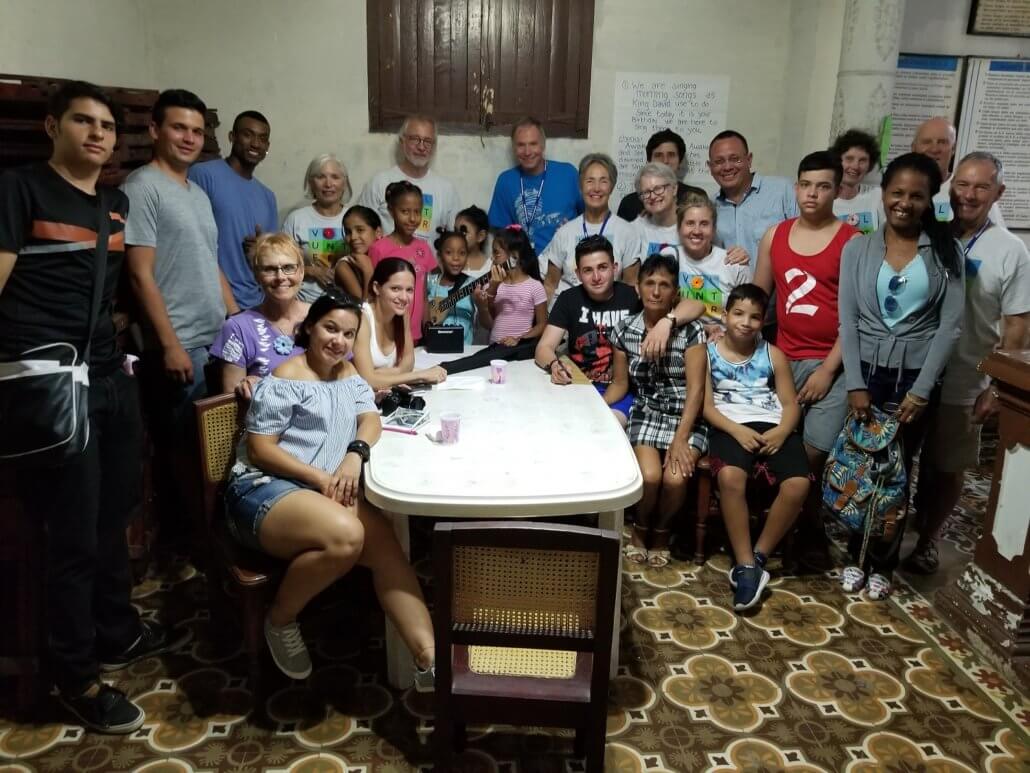
The teachers and students pose together on the final night of English lessons in Ciego de Ávila . 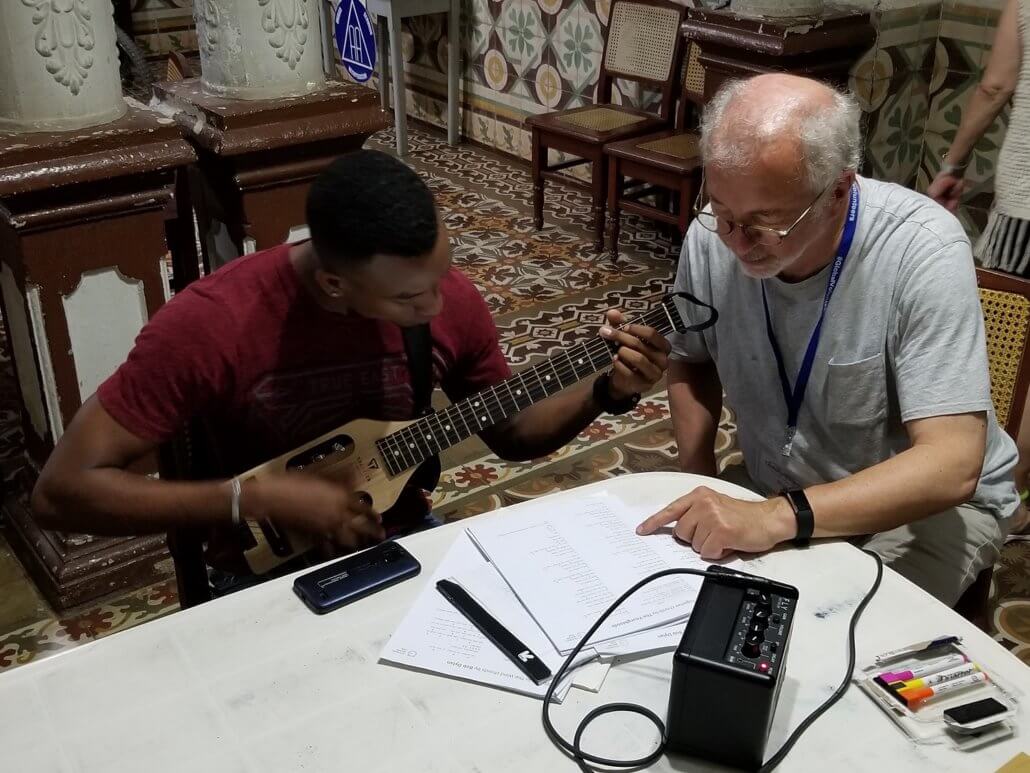
English language student Raphael gains some guitar-playing tips from Peter.
You may also like:
Active retirement through volunteering
Grandmother and grandson volunteer in Cuba

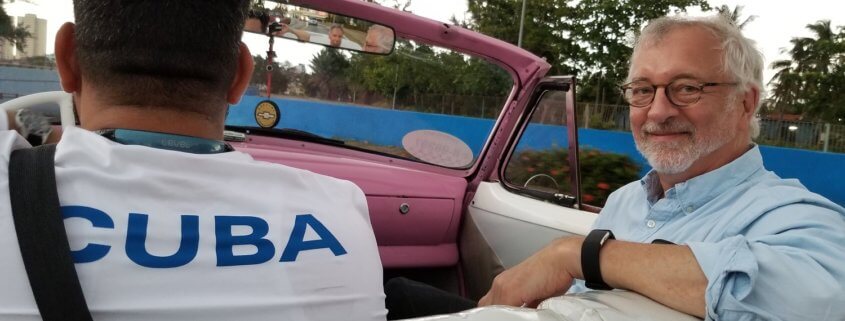


Leave a Reply
Want to join the discussion?Feel free to contribute!